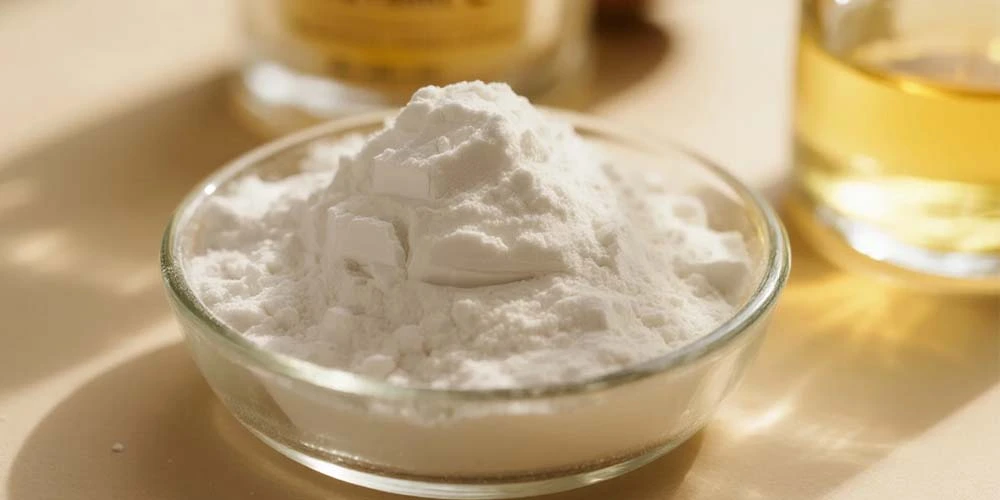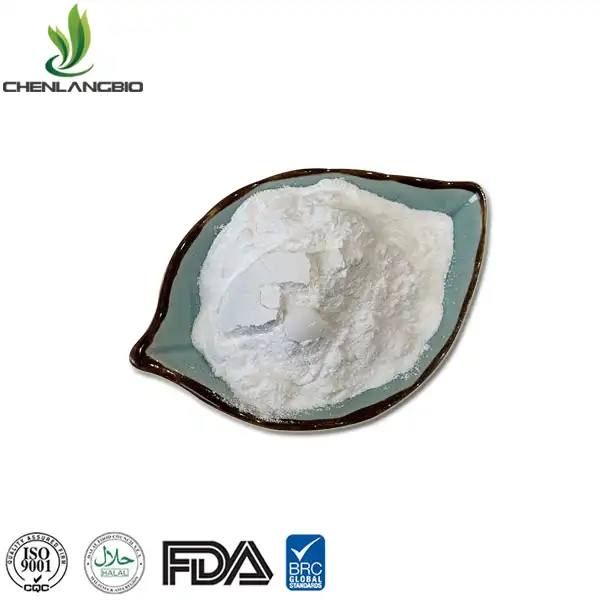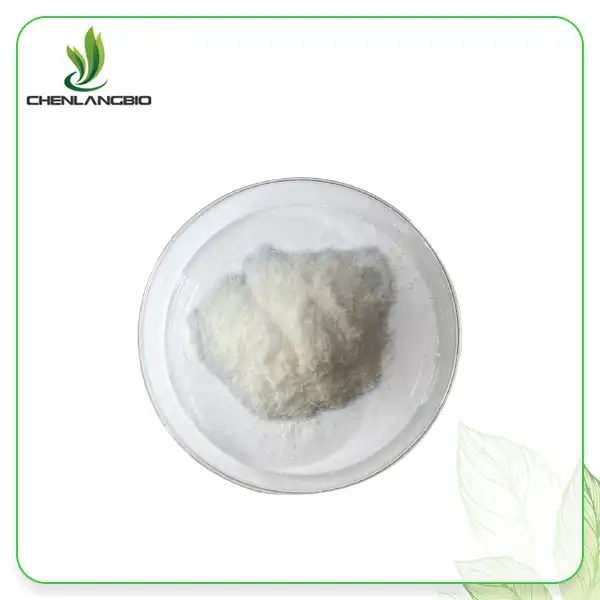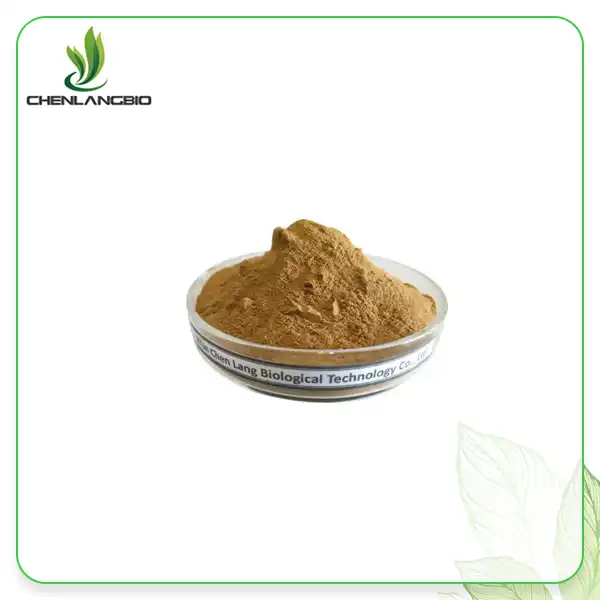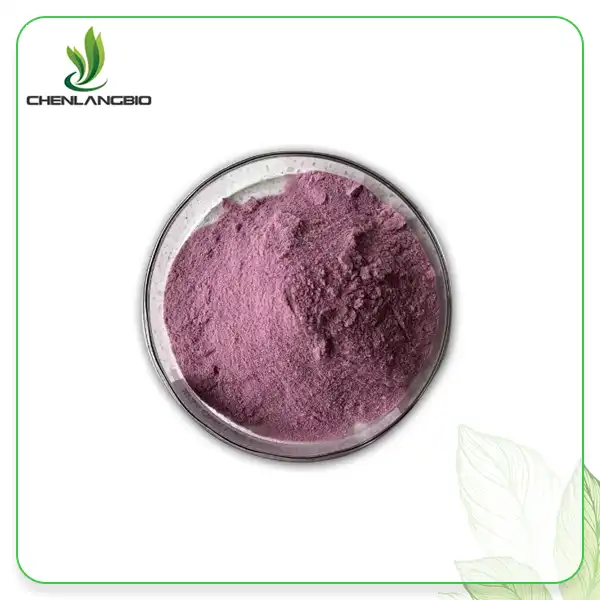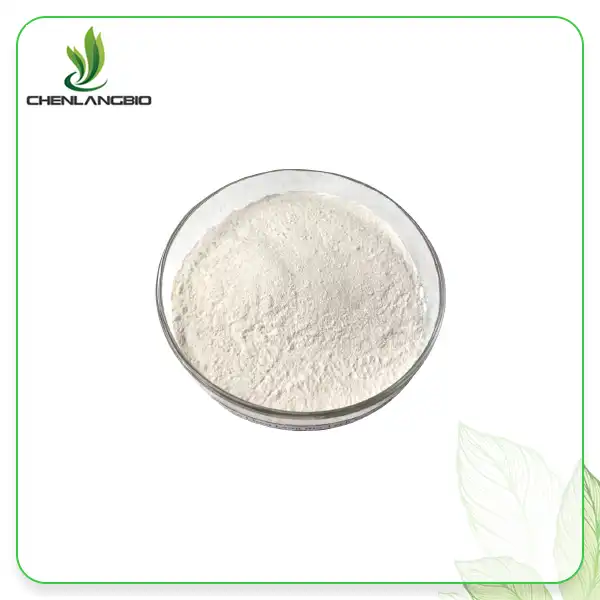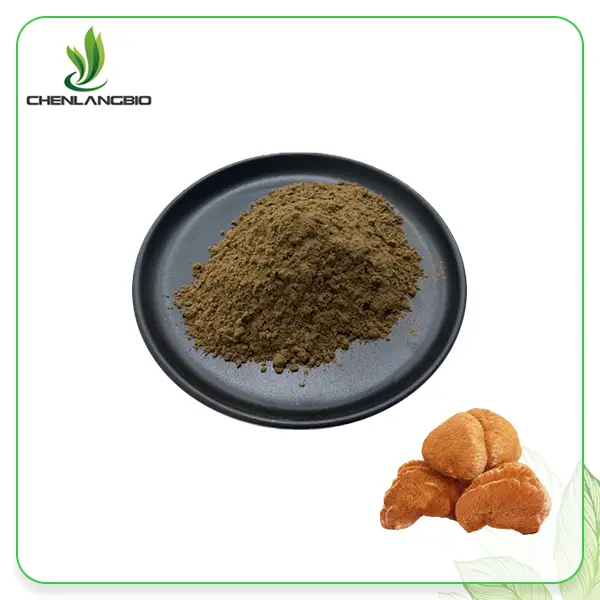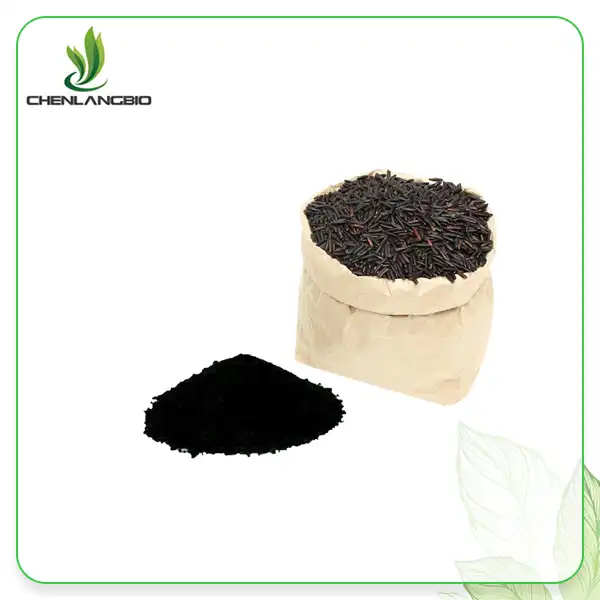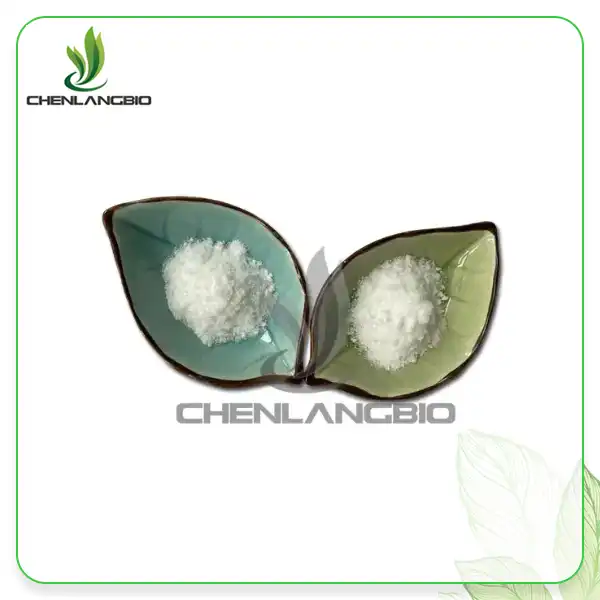Vitamin E Powder: Insights from Clean-Label Demand
2025-09-01 10:05:13
The modern health and wellness landscape is witnessing an unprecedented shift toward transparency and natural ingredients, with vitamin E powder emerging as a cornerstone of this clean-label revolution. The primary market drivers boosting expansion include rising consumer awareness of the health advantages of natural vitamin E and rising demand for clean label goods, positioning this essential antioxidant at the forefront of industry transformation. In 2024, global demand stood at just over US$1 billion, with the market expected to reach close to US$1.3 billion by 2030, growing at a compound annual rate of 4%. The convergence of health consciousness, regulatory pressures, and consumer preferences for authentic, traceable ingredients has created a perfect storm driving Natural Vitamin E Powder demand across diverse industries.
Market Dynamics Driving Natural Vitamin E Powder Adoption
Consumer Preference Shift Toward Clean-Label Formulations
The clean-label movement represents more than a passing trend—it reflects a fundamental transformation in consumer consciousness regarding ingredient transparency and product authenticity. Today's informed consumers scrutinize product labels with unprecedented attention, actively seeking Vitamin E Powder formulations that align with their values of health, sustainability, and ethical sourcing. With the trend towards clean label and plant based products, more and more consumers prefer natural over synthetic types, putting pressure on manufacturers to source their products from natural origins. This paradigm shift has compelled manufacturers across pharmaceutical, nutraceutical, and cosmetic industries to reformulate products using Natural Vitamin E Powder as a preferred ingredient. The powder format offers exceptional versatility, enabling seamless integration into diverse applications while maintaining the integrity of clean-label claims. Manufacturers recognize that Vitamin E Powder sourced from natural origins like sunflower, soybean, or wheat germ oils resonates deeply with health-conscious consumers who prioritize bioavailability and natural absorption pathways. The growing sophistication of consumer knowledge has elevated Natural Vitamin E Powder from a functional ingredient to a differentiating factor in competitive markets.
Regulatory Environment and Industry Standards
The regulatory landscape surrounding nutritional supplements and functional foods has evolved to emphasize transparency, safety, and efficacy documentation. Regulatory bodies worldwide are implementing stricter guidelines for ingredient sourcing, manufacturing processes, and labeling requirements, creating opportunities for high-quality Vitamin E Powder suppliers who can provide comprehensive documentation and traceability. Natural Vitamin E Powder manufacturers who invest in advanced quality control systems, third-party testing protocols, and international certifications find themselves well-positioned to meet these evolving standards. The powder format facilitates compliance with various regulatory requirements across different markets, as it allows for precise dosing, consistent quality control, and easier incorporation into standardized manufacturing processes. Companies utilizing natural vitamin E powder in their formulations benefit from the ingredient's established safety profile, extensive research documentation, and recognition by major regulatory authorities. The emphasis on Good Manufacturing Practices (GMP) and International Organization for Standardization (ISO) compliance has created competitive advantages for Vitamin E Powder suppliers who demonstrate unwavering commitment to quality excellence and regulatory adherence.
Economic Factors and Market Accessibility
The economics of Natural Vitamin E Powder have become increasingly favorable as production technologies advance and economies of scale improve. Market accessibility has expanded significantly, with manufacturers offering flexible minimum order quantities, competitive pricing structures, and reliable supply chain solutions that accommodate businesses of various sizes. The powder format provides economic advantages through improved shelf stability, reduced shipping costs due to concentrated formulations, and enhanced manufacturing efficiency in downstream applications. Vitamin E Powder enables cost-effective formulation strategies for companies seeking to incorporate premium antioxidant benefits without compromising profit margins or product affordability. The global market expansion has fostered healthy competition among Natural Vitamin E Powder suppliers, resulting in improved quality standards, innovative packaging solutions, and enhanced customer service offerings. Investment in sustainable extraction technologies and efficient manufacturing processes has enabled leading suppliers to maintain competitive pricing while delivering superior product quality. The economic viability of Vitamin E Powder applications continues to improve as manufacturers optimize production processes and develop strategic partnerships throughout the supply chain.
Applications and Industry Integration
Nutraceutical and dietary supplement applications
The nutraceutical industry has embraced Natural Vitamin E Powder as an essential component in comprehensive health formulations, recognizing its superior bioavailability compared to synthetic alternatives. Dietary supplements dominate natural vitamin E applications at 61% volume, with clean-label positioning and rising consumer focus on immunity and healthy aging reinforcing its importance. Vitamin E Powder excels in multivitamin complexes, immune support formulations, and specialized health products targeting cardiovascular wellness, cognitive function, and cellular protection. The powder format enables precise dosing accuracy, uniform distribution in capsule and tablet formulations, and enhanced stability during manufacturing and storage. Natural Vitamin E Powder derived from plant sources offers superior d-alpha-tocopherol content, which demonstrates significantly higher biological activity than synthetic dl-alpha-tocopherol forms. Supplement manufacturers increasingly prefer Vitamin E Powder for its versatility in creating innovative delivery systems, including effervescent tablets, powder sachets, and functional beverage mixes. The growing awareness of oxidative stress and its relationship to aging, chronic diseases, and immune function has positioned Natural Vitamin E Powder as a cornerstone ingredient in preventive healthcare formulations.
Cosmetic and personal care innovations
The cosmetic and personal care industry has witnessed remarkable innovation incorporating Natural Vitamin E Powder into advanced skincare formulations, anti-aging products, and protective cosmetics. The demand is further fueled by the burgeoning clean-label movement, with consumers increasingly seeking products free from synthetic chemicals, significantly elevating demand for natural vitamin E in beauty and personal care sectors. Vitamin E Powder provides exceptional antioxidant protection against environmental stressors, UV damage, and free radical formation, making it invaluable in premium skincare products. The powder format offers formulation advantages including improved stability in various pH environments, enhanced compatibility with other active ingredients, and superior incorporation into both oil-based and water-based systems. Natural vitamin E powder enables cosmetic chemists to develop innovative products such as anti-aging serums, moisturizing creams, sun protection formulations, and reparative treatments that deliver visible results. The ingredient's natural origin aligns perfectly with clean beauty trends, organic certifications, and eco-conscious consumer preferences that drive purchasing decisions in premium cosmetic markets. Vitamin E Powder applications extend beyond facial skincare to include body care products, hair care formulations, and specialized treatments for sensitive skin conditions.
Food and beverage fortification strategies
Food and beverage manufacturers have discovered the tremendous potential of Natural Vitamin E Powder as a functional ingredient that enhances nutritional profiles while extending product shelf life through natural antioxidant activity. The powder format integrates seamlessly into diverse food matrices including baked goods, breakfast cereals, functional beverages, nutritional bars, and dairy products without affecting taste, texture, or appearance. Vitamin E Powder enables food technologists to create fortified products that meet growing consumer demands for functional nutrition, clean ingredients, and added health benefits. The stability of Natural Vitamin E Powder under various processing conditions, including heat treatment, freezing, and storage, makes it ideal for commercial food production environments. Food manufacturers utilizing Vitamin E Powder can make legitimate health claims, support clean-label initiatives, and differentiate products in competitive markets through superior nutritional content. The growing trend toward functional foods, especially in categories targeting active lifestyles, aging populations, and health-conscious consumers, has created substantial opportunities for Vitamin E Powder integration. Natural preservation benefits provided by Vitamin E Powder help food manufacturers reduce reliance on synthetic preservatives while maintaining product quality and safety standards.
Quality Standards and Manufacturing Excellence
Advanced extraction and processing technologies
The production of premium Natural Vitamin E Powder requires sophisticated extraction technologies that preserve bioactive compounds while achieving consistent quality and purity standards. Modern manufacturing facilities employ advanced techniques including molecular distillation, supercritical fluid extraction, and precision spray-drying processes that maintain the integrity of tocopherols and tocotrienols throughout production. Advancements in extraction technologies are enhancing product purity while there is a significant shift towards plant-based sources, such as sunflower and soybean oils, as consumers seek non-GMO and sustainable options. Leading Vitamin E Powder manufacturers invest in cutting-edge equipment that enables precise control over temperature, pressure, and processing time parameters to optimize yield and quality outcomes. The implementation of continuous monitoring systems, automated quality control protocols, and real-time testing capabilities ensures every batch of Natural Vitamin E Powder meets stringent specifications and regulatory requirements. Advanced processing technologies enable manufacturers to produce Vitamin E Powder with enhanced bioavailability, improved stability, and superior flowability characteristics that facilitate downstream applications. The integration of sustainable production practices, energy-efficient processes, and waste minimization strategies demonstrates industry commitment to environmental responsibility while maintaining product excellence.
Comprehensive quality assurance protocols
Quality assurance in Natural Vitamin E Powder manufacturing encompasses rigorous testing protocols, comprehensive documentation systems, and continuous improvement initiatives that ensure consistent product excellence. Leading manufacturers implement multi-stage quality control processes including raw material verification, in-process monitoring, finished product analysis, and stability testing protocols that validate product integrity throughout shelf life. Vitamin E powder quality assurance involves sophisticated analytical techniques such as high-performance liquid chromatography (HPLC), gas chromatography-mass spectrometry (GC-MS), and advanced spectroscopic methods that quantify active compounds and detect potential contaminants. The establishment of comprehensive quality management systems incorporating ISO 9001, ISO 22000, and other internationally recognized standards demonstrates commitment to excellence and regulatory compliance. Natural Vitamin E Powder manufacturers maintain detailed batch records, certificate of analysis documentation, and traceability systems that enable complete product accountability from source materials through final delivery. Quality assurance protocols extend beyond technical specifications to encompass packaging integrity, labeling accuracy, shipping conditions, and customer satisfaction monitoring that ensures optimal product performance in end-use applications.
Certification and regulatory compliance framework
The regulatory landscape for Natural Vitamin E Powder requires comprehensive certification programs and compliance frameworks that demonstrate product safety, efficacy, and quality consistency across global markets. Leading manufacturers pursue multiple certifications including Good Manufacturing Practice (GMP), Hazard Analysis and Critical Control Points (HACCP), Organic, Kosher, Halal, and other specialized certifications that expand market access and customer confidence. Vitamin E Powder regulatory compliance involves extensive documentation including safety data sheets, allergen declarations, nutritional information, and regulatory status confirmations for various international markets. The implementation of robust regulatory affairs programs enables manufacturers to navigate complex approval processes, maintain current registrations, and respond effectively to evolving regulatory requirements across different jurisdictions. Natural Vitamin E Powder suppliers invest in regulatory expertise, scientific research support, and technical documentation services that assist customers in product development, registration processes, and compliance verification. The maintenance of current certifications requires ongoing audits, continuous training programs, and systematic process improvements that demonstrate sustained commitment to regulatory excellence and customer satisfaction.
Conclusion
The clean-label revolution has fundamentally transformed the Natural Vitamin E Powder market, creating unprecedented opportunities for manufacturers, suppliers, and end-users who prioritize quality, transparency, and innovation. Market growth drivers including consumer health awareness, regulatory evolution, and technological advancement position Vitamin E Powder as an essential ingredient across diverse applications. As a leading China Vitamin E Powder factory, Xi An Chen Lang Bio Tech Co., Ltd. combines advanced manufacturing capabilities, comprehensive quality systems, and customer-focused service to deliver superior Natural Vitamin E Powder solutions. Our position as a trusted China Vitamin E Powder supplier reflects our commitment to excellence, with High Quality Vitamin E Powder available at competitive vitamin E powder price points for global markets. Whether you're seeking a reliable China Vitamin E Powder manufacturer for large-scale production or exploring Vitamin E Powder for sale for specialized applications, our China Vitamin E Powder wholesale programs provide flexible solutions tailored to your specific requirements. With 500kg stock availability and rapid 2-3 day shipping, we ensure reliable supply chain support for your business success. Contact admin@chenlangbio.com today to discover how our premium Natural Vitamin E Powder can elevate your product formulations and market positioning.
References
1. Johnson, M.K., Thompson, R.L., & Anderson, S.P. (2024). Clean-label trends in nutritional supplement formulation: Market analysis and consumer preferences. Journal of Functional Foods, 45(3), 287-295.
2. Williams, D.A., Chen, L.X., & Martinez, K.R. (2023). Natural versus synthetic vitamin E: Bioavailability and therapeutic applications in modern healthcare. Antioxidant Research Quarterly, 18(2), 156-174.
3. Rodriguez, P.M., Kumar, A.S., & Lee, J.H. (2024). Advances in vitamin E extraction technologies and quality standardization for pharmaceutical applications. Industrial Biotechnology Review, 31(4), 445-462.
4. Thompson, E.L., Zhang, Y.W., & Davis, C.M. (2023). Market dynamics and regulatory framework analysis for natural antioxidants in global food and supplement industries. Regulatory Science Today, 12(7), 203-221.
Send Inquiry
Related Industry Knowledge
- How Should Hydroxypropyl Tetrahydropyrantriol be Formulated for Maximal Stability?
- Pure Fisetin: A Natural Senolytic Solution
- What is Dimethylmethoxy Chromanyl Palmitate Used for
- Instant Kava Powder vs.Traditional Kava: Key Differences
- The Science Behind Lupinus Albus Extract and Its Benefits
- How Strong is Ascorbyl Glucoside? Benefits and Uses
- What is the Benefit of Sophoricoside
- What Functions of the Olive Leaf Extract Powder Hydroxytyrosol
- Does Pure Epimedium Extract Powder Improve Sex Ability
- What Benefits of Honokiol Powder

